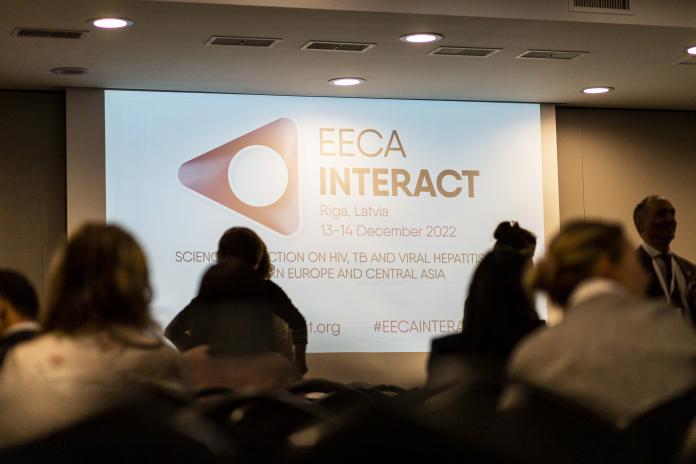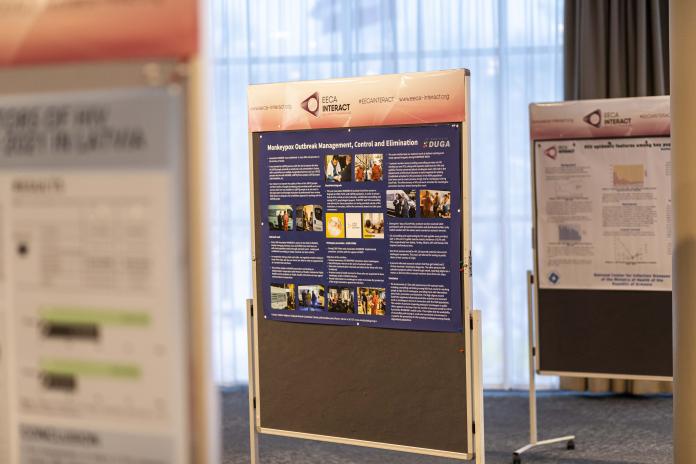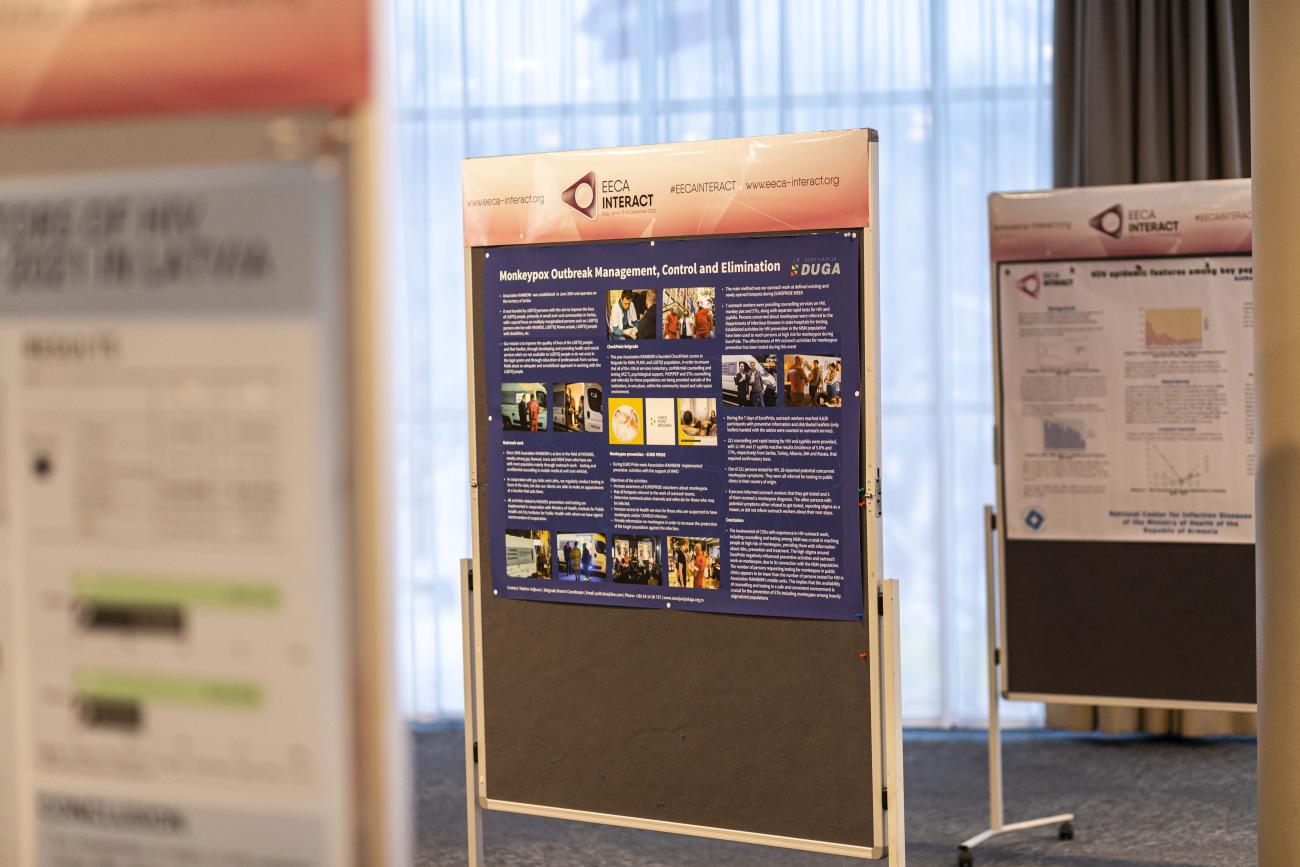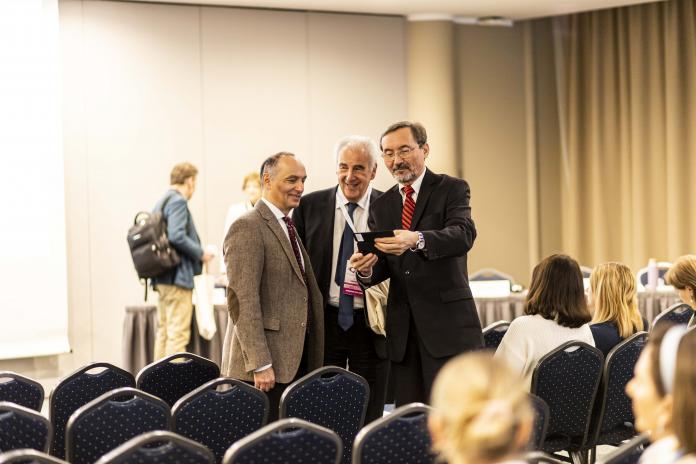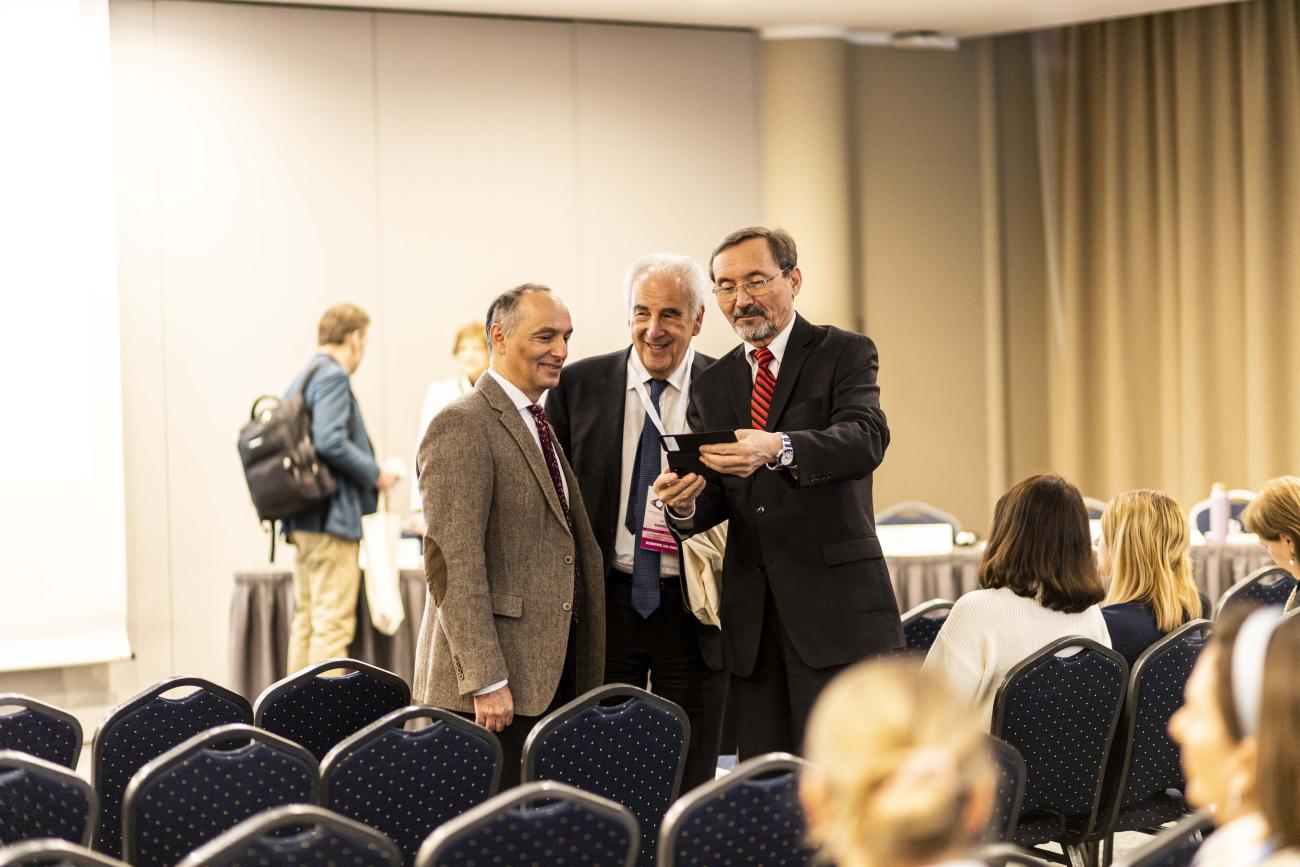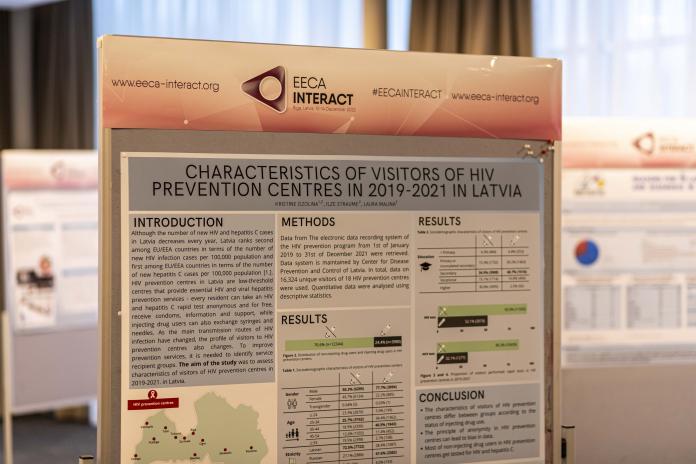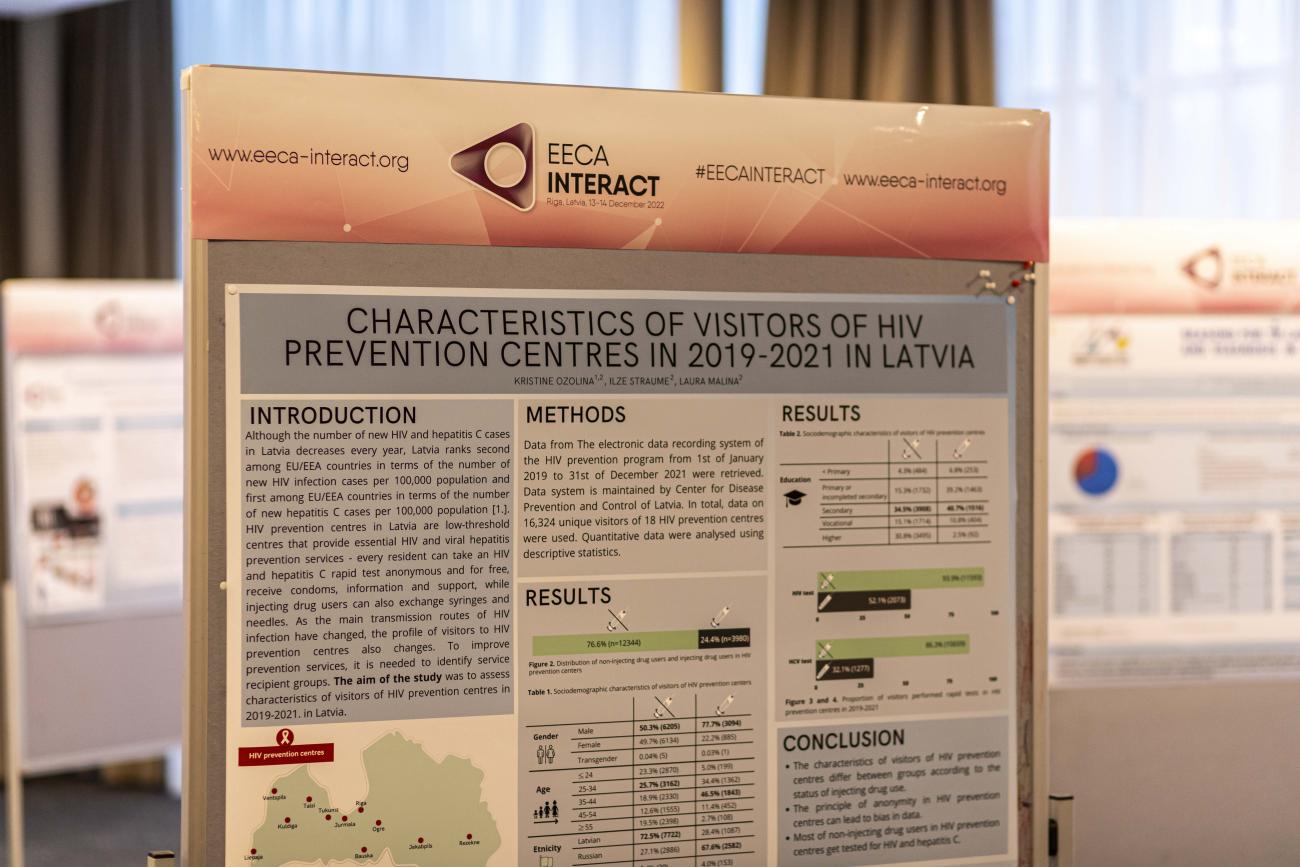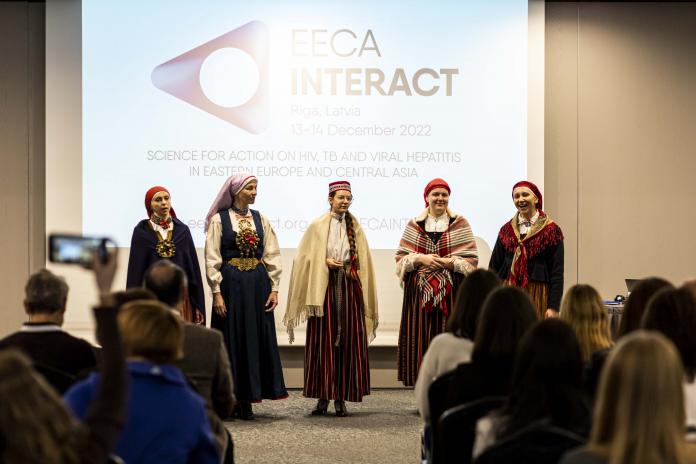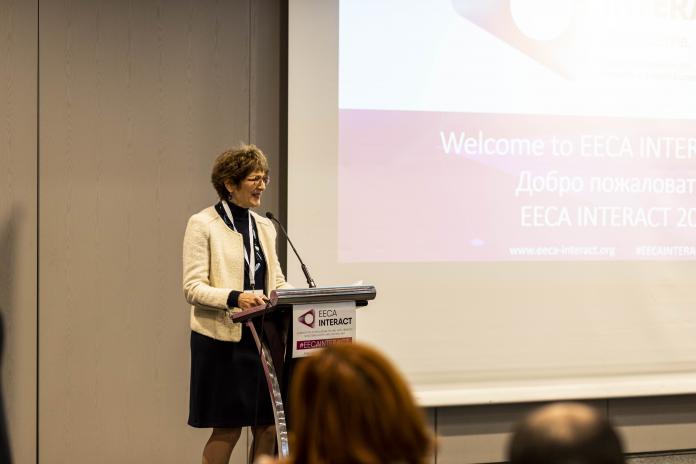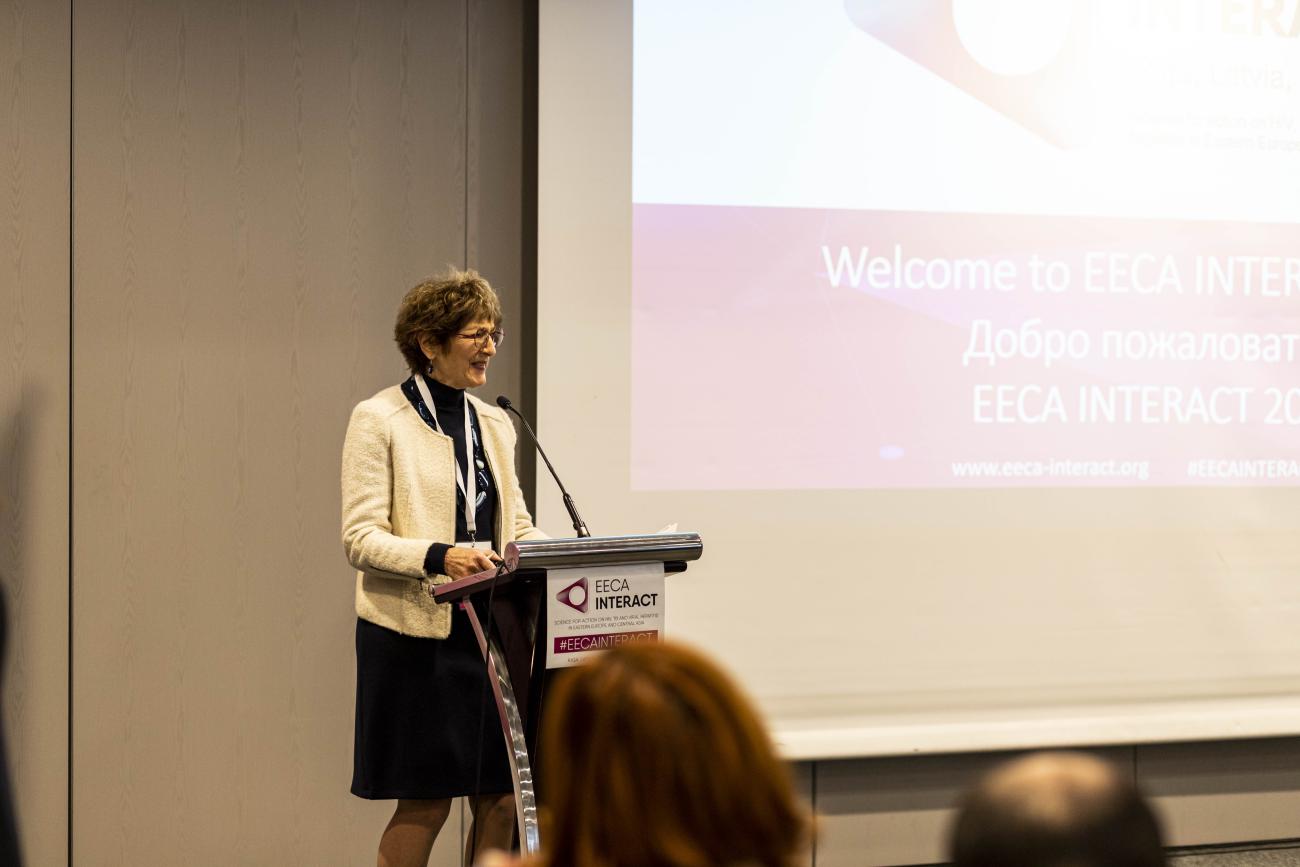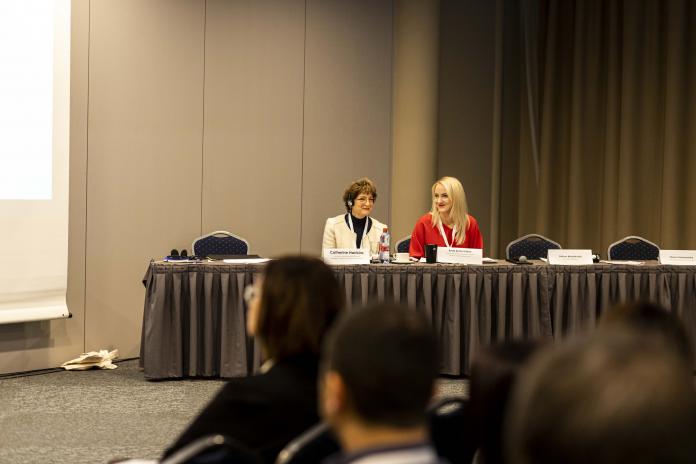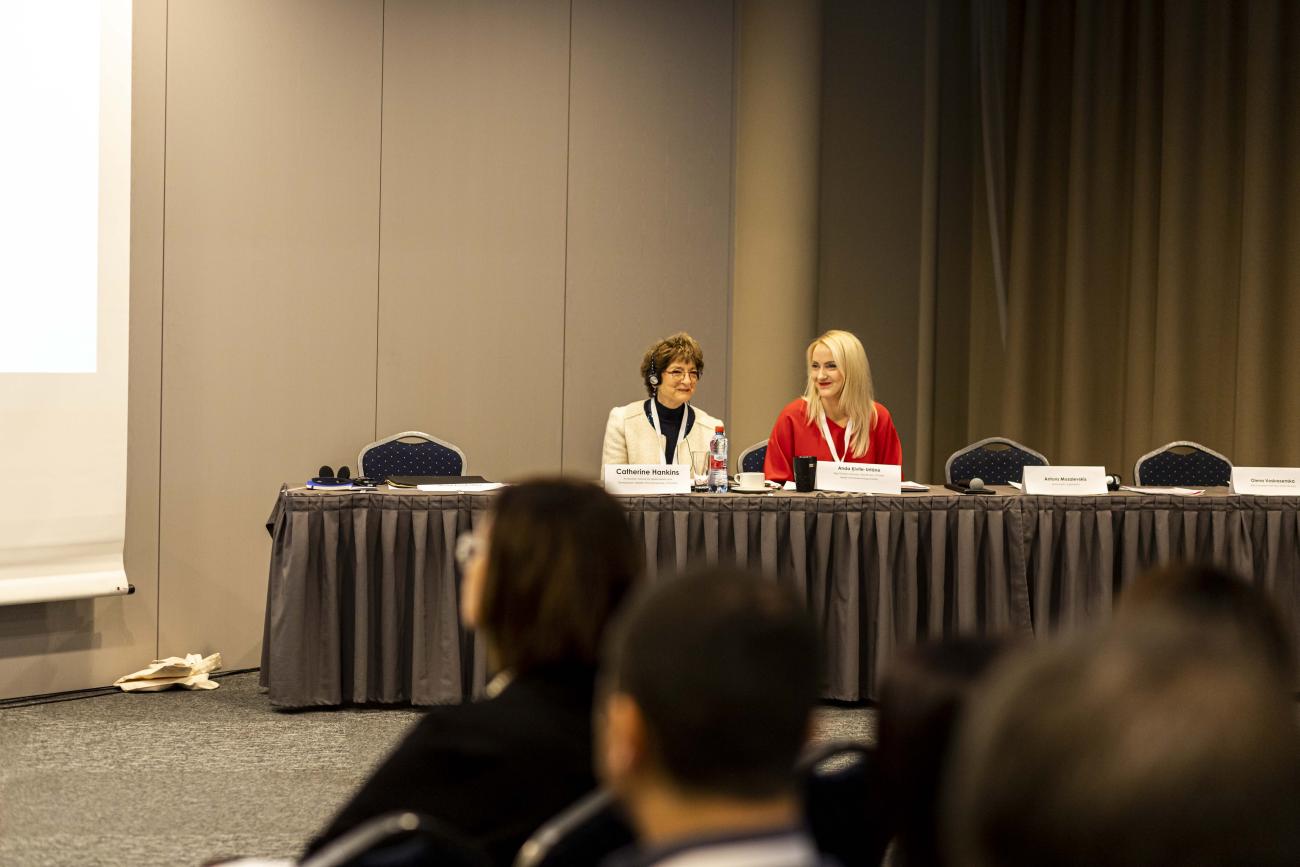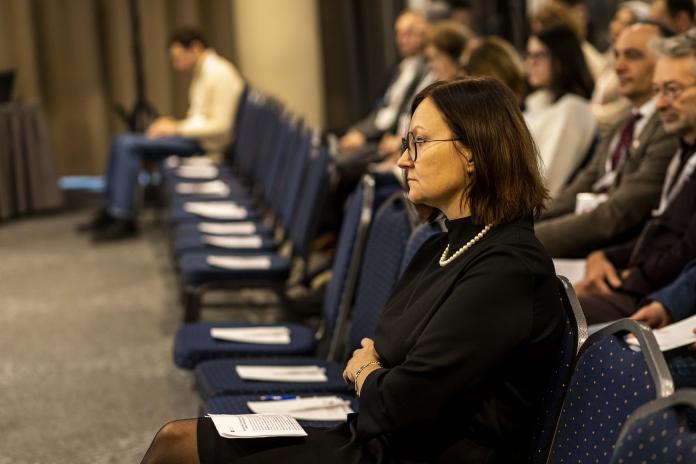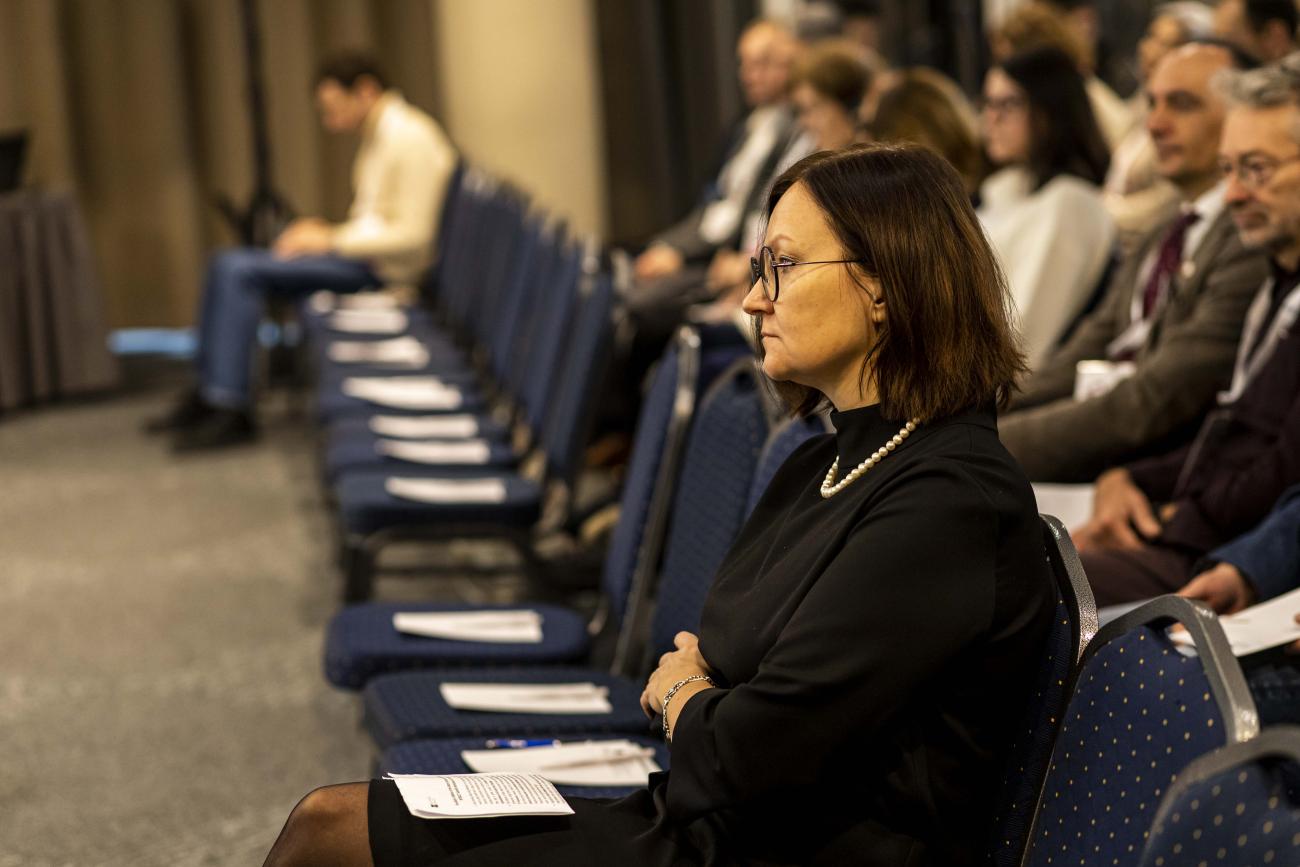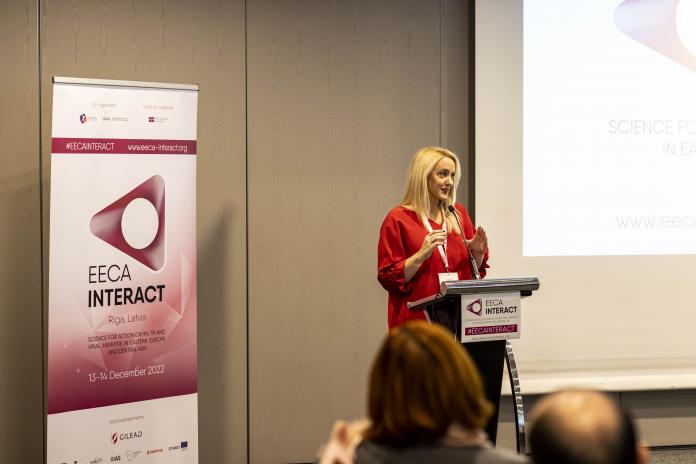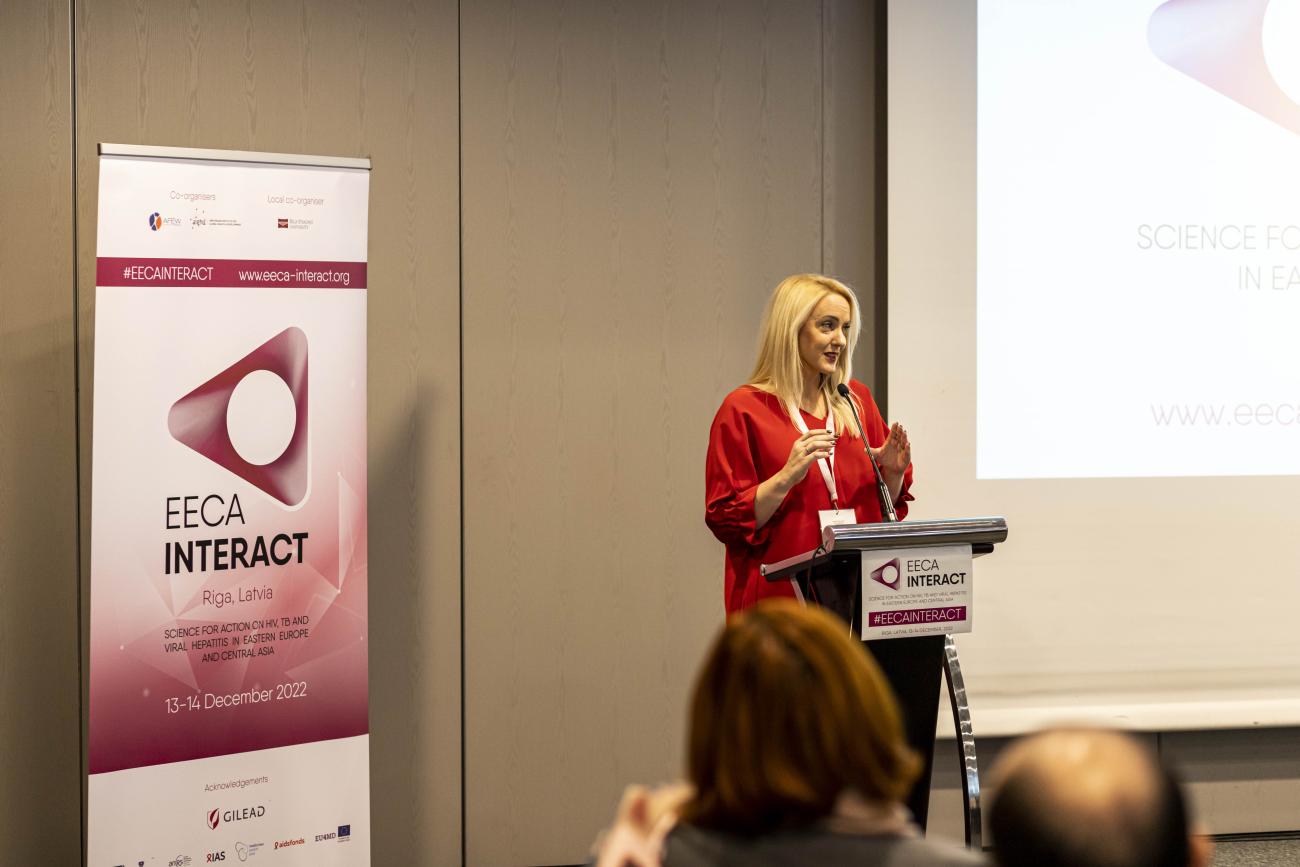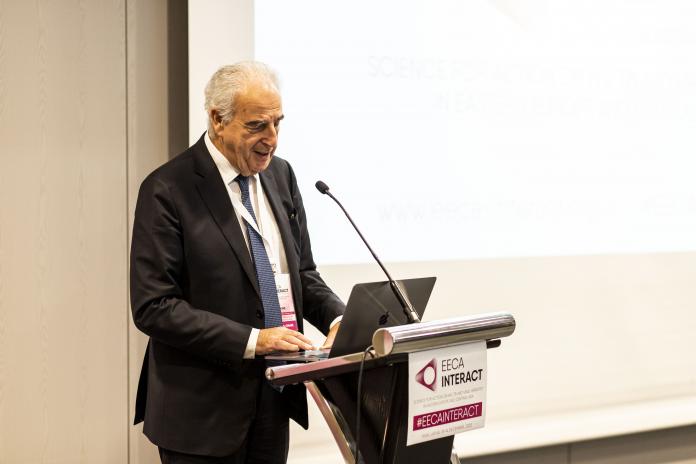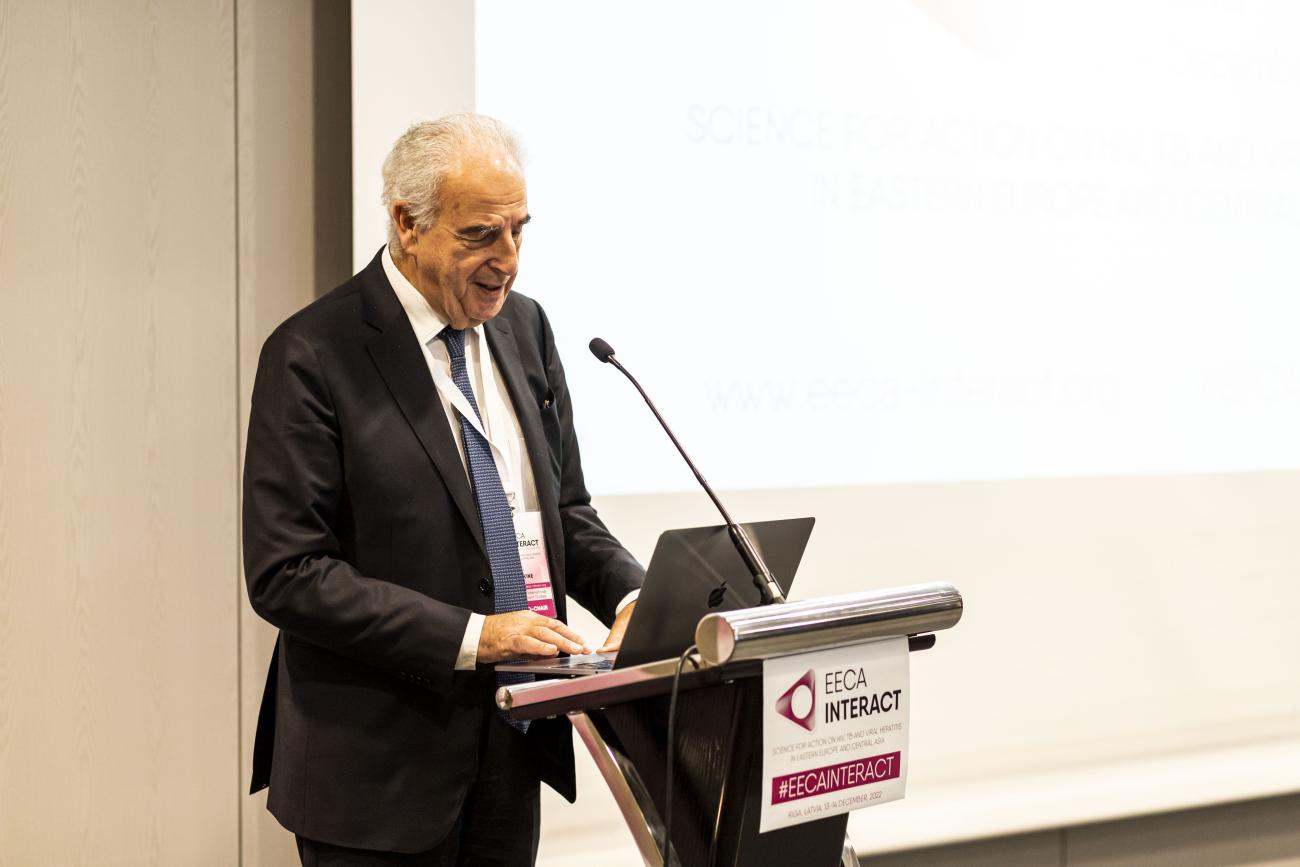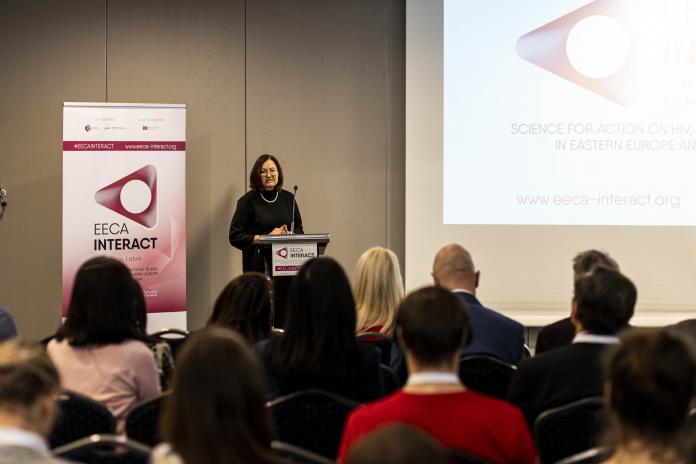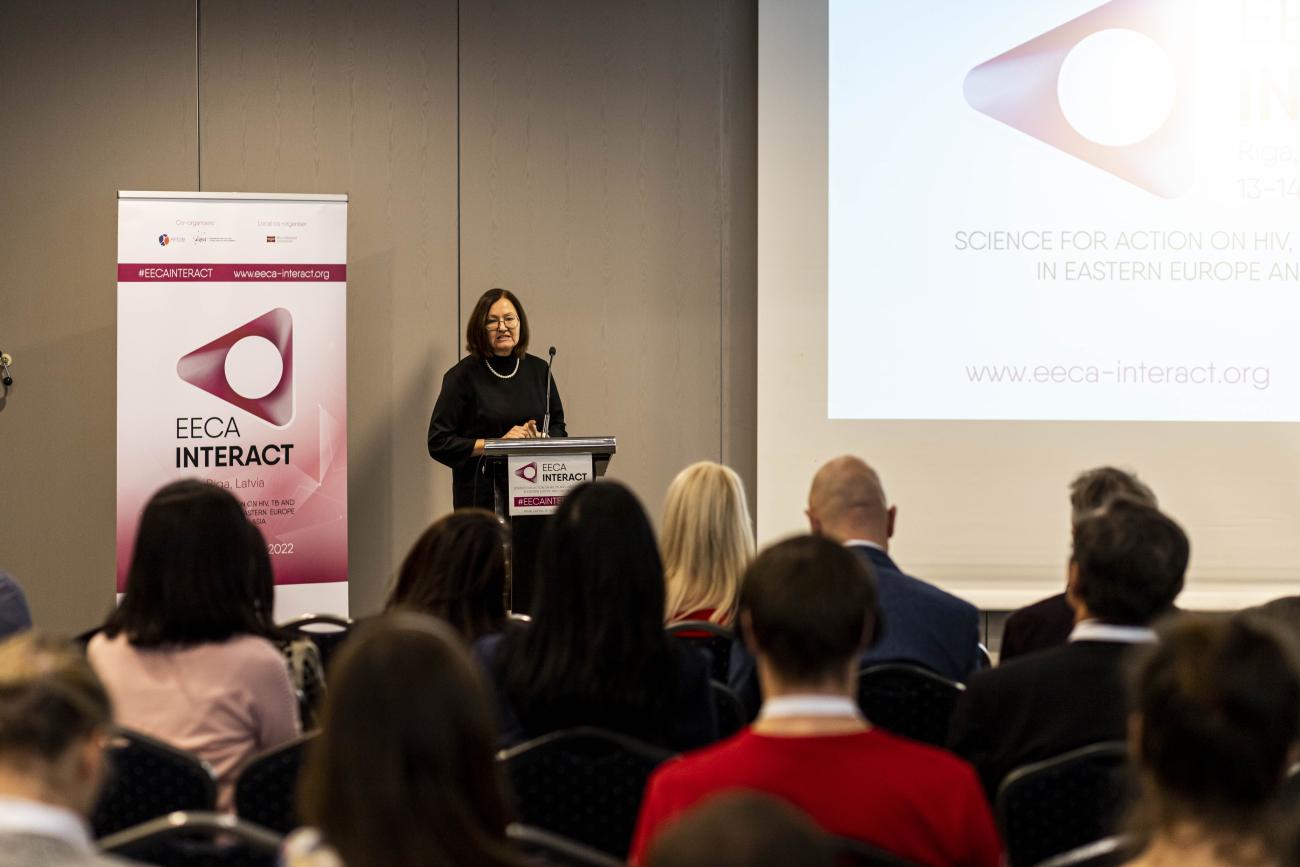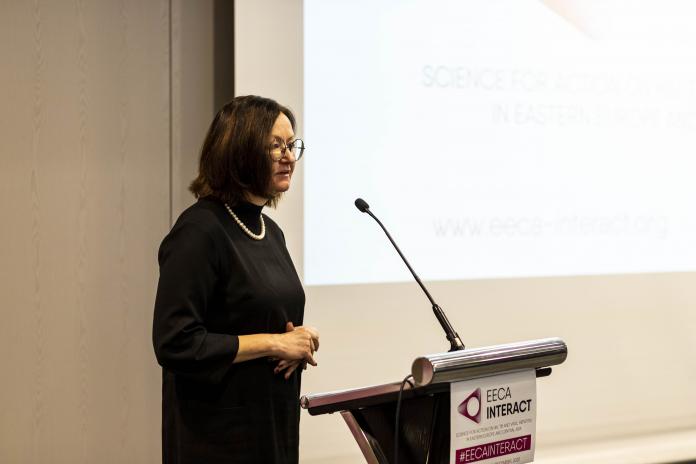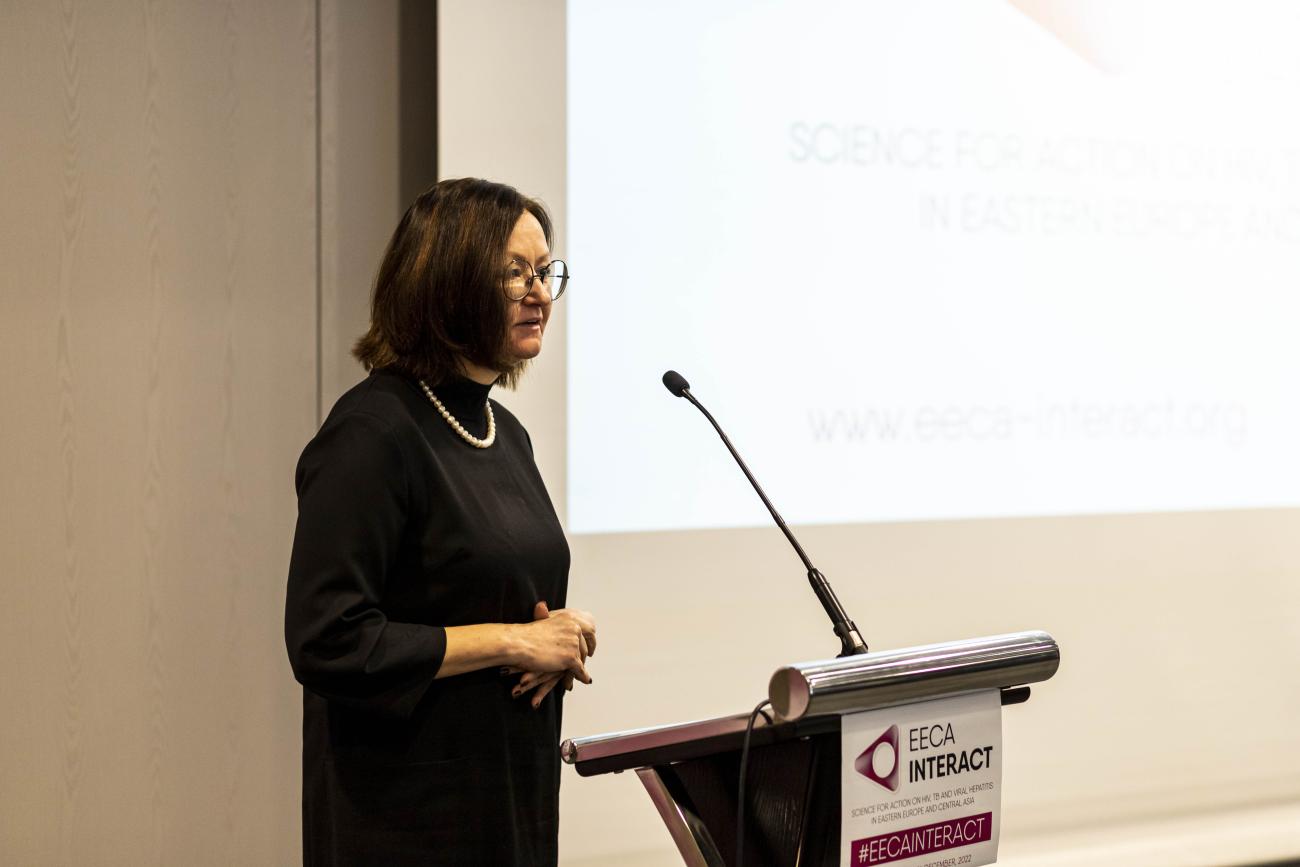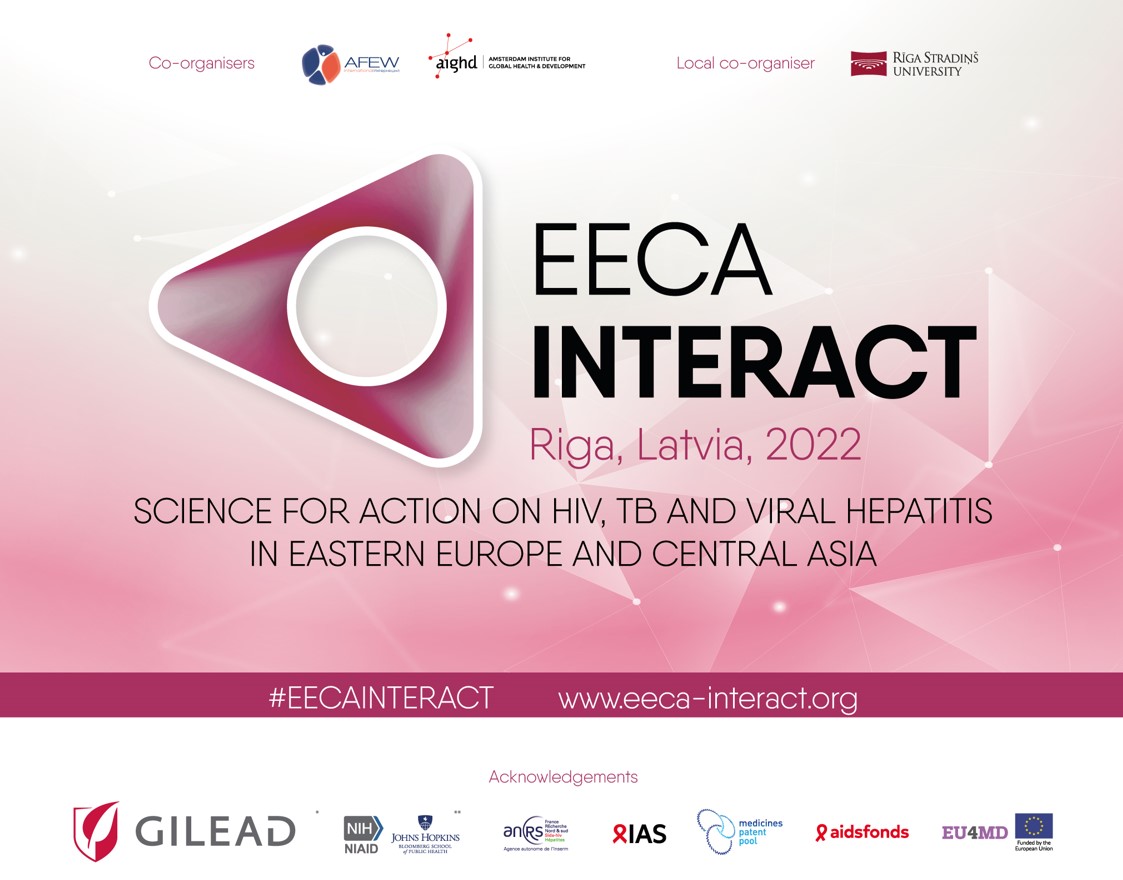RSU Brings Together International Experts on HIV, Tuberculosis and Viral Hepatitis
The international EECA INTERACT conference took place on 13-14 December to strengthen scientific capacity and transnational cooperation in controlling HIV, tuberculosis, and viral hepatitis. It was organised by Riga Stradiņš University (RSU), the Amsterdam Institute for Global Health and Development (AIGHD), and AFEW International, a Dutch non-governmental organisation working to strengthen public health and promote access to treatment in developing countries.
The theme of this year’s conference is “Science for action on HIV, TB, and viral hepatitis in Eastern Europe and Central Asia”.
The RSU Institute of Public Health was the co-organiser of this international event. The RSU Vice-Rector of Sciences Agrita Kiopa pointed out at the opening of the conference that although the Institute of Public Health is the youngest of the university's research institutes, having just celebrated its fifth anniversary, it has already managed to grow to include 26 professionals and has attracted more than 4m euros for research. The Institute's professional vision is sought out by the Latvian government and key health institutions, as well as by the World Health Organisation, for which the Institute is expected to become a centre of cooperation next year.
The scientific workshop will bring together public health and virology experts from all around the world. Among them will be Prof. Catherine Hankins, Deputy Director at the Amsterdam Institute for Global Health and Development, Prof. Michel Kazatchkine, Advisor to the World Health Organisation (WHO), Course Director of the Graduate Institute of International Affairs and Development Studies, Assoc. Prof. Anda Ķīvīte-Urtāne, Director of the RSU Institute of Public Health, Stefan Baral, Professor at Johns Hopkins School of Public Health and other experienced researchers.
At the workshop, participants will discuss the spread of HIV, tuberculosis, and viral hepatitis in Eastern Europe and Central Asia, the effectiveness of drugs in treatment, the legal and sectoral policy framework for disease reduction, the latest scientific developments, and examples of good practice. A separate session will be devoted to the impact that the war has had on public health in Ukraine, assessing the prevalence of diseases among the refugees of war.
‘The workshop has two equally important tasks. The first is to strengthen research capacity and raise the scientific bar in Eastern Europe and Central Asia. The second is a reminder that HIV and similar diseases have not disappeared at a time when all efforts and resources are basically devoted to fighting COVID-19.
If we forget the threat of HIV and the fact that Latvia is second in Europe in terms of the number of new HIV cases per capita. An HIV outbreak could be next. Moreover, according to survey data, 78% of our country’s population believe that HIV does not concern them.
This is alarming and dangerous,’ explains Anda Ķīvīte-Urtāne, Associate Professor at RSU.
Plašāk par konferenci, kā arī minēto slimību izplatību Latvijā LTV1 raidījumā Rīta Panorāma stāsta asoc. prof. Anda Ķīvīte-Urtāne.
Assoc. Prof. Anda Ķīvīte-Urtāne speaks about the conference, as well as the prevalence of these diseases in Latvia, on the LTV1 programme Rīta Panorāma (in Latvian).
Related news
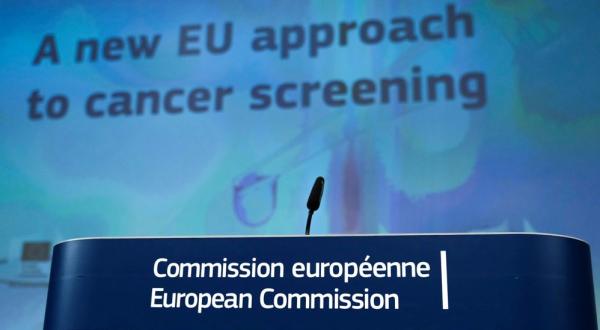 From Data Harmonisation to Artificial Intelligence: EUCanScreen Modernises Cancer Screening Across EuropePublic Health, International Cooperation
From Data Harmonisation to Artificial Intelligence: EUCanScreen Modernises Cancer Screening Across EuropePublic Health, International Cooperation